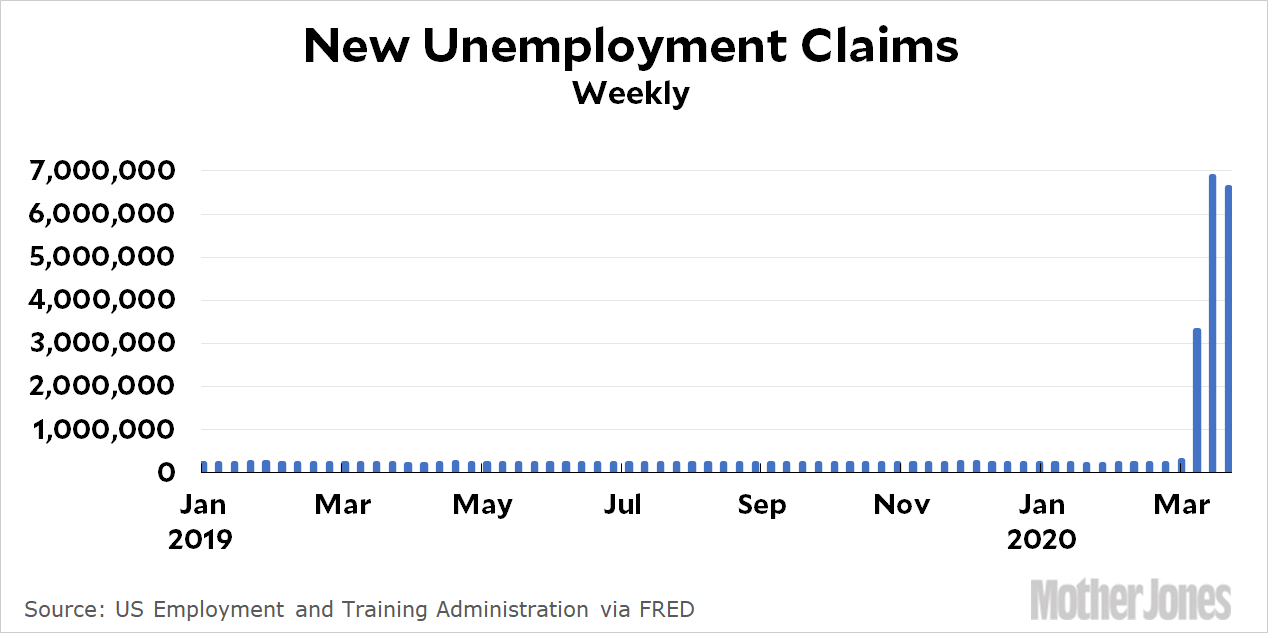Laid-off workers filed another 6 million unemployment applications this week. That brings us to 16 million coronavirus-related claims. I will once again say that this is good news: it means lots of people are applying for the expanded unemployment benefits in the rescue bill, and they’ll be kept whole until the COVID-19 countermeasures are lifted. When that happens, their savings will be intact and their consumption behavior will be unchanged.
Despite the best efforts of the news media to pretend otherwise, have you noticed that there’s surprisingly little economic panic right now? Obviously there’s some because the rescue bill doesn’t rescue literally everyone. But if we had unemployment like this caused by a normal recession, the panic would be palpable. Instead we have people delaying rent payments a bit, dipping into savings temporarily until the unemployment checks arrive, and making jokes about Netflix. Under the circumstances, people are taking this surprisingly well, and that’s because they know that help is on the way.














